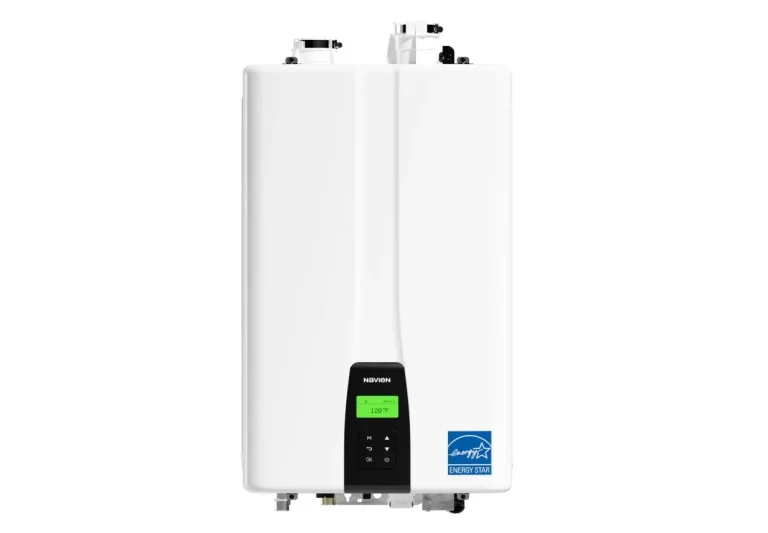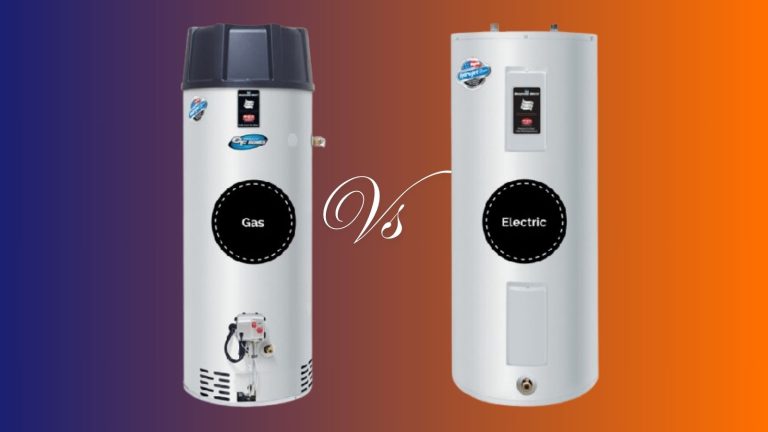Tankless vs Tank Water Heaters: Which One is Best for You?
Deciding between the tankless vs tank water heaters can be cruicial for your home’s comfort and cost of energy. This article delved into the tankless vs tank water heaters debate, and compares their specifications as well as their costs and performance to help you decide. Suppose you’re a fan of unlimited heat, efficiency in energy, or a budget. In that case, this article is an essential read to help you make an informed decision about the best tankless water heater for your hot-water requirements, thereby saving time and money, as well as headaches.
1. What Is a Tankless Water Heater and How Does It Work?
The tankless water heater is also known by the name of an “on-demand” heater will heat the water when you want it, not like the traditional tanks water heater that is stored in a. If you switch on the faucet the cold water will flow into it into the tankless device and is then immediately heated by gas or electric elements. This ensures a continuous source of hot liquid without the requirement to have tanks for storage, and is ideal for homes that need warm water often.
It is a tankless water heater that uses electric coils or high-powered burners to warm water when it flows through the device. This reduces the energy cost that comes with keeping the water inside tanks hot, which is the case when using traditional heaters for water. However, the tankless water heater could struggle to power several fixtures simultaneously in larger homes, based on the capacity of the unit.
2. How Does a Tank Water Heater Function?
A tank water heater, also known as a Tank water heater is also known as Storage tank heater, is a device that stores and heats a huge amount of water within the form of a storage tank, which typically can hold 30-50 gallons. It utilizes natural gas or electricity to heat the water and ensure a constant quantity of hot water for use by the household. If you are using warm water from the tap, the reservoir fills using chilled water and is heated to replenish water that was storage water.
Tank-type water heaters usually function by keeping the water at a certain temperature, which could lead to standby heat loss. They are therefore less efficient than the tankless models. Yet, tank models are suitable for homes that have moderate hot water requirements since they offer an ongoing quantity of hot water until the tank’s supply is exhausted, following which they need to be water again.
3. What Are the Key Differences Between Traditional Water Heaters and Tankless Water Heaters?
This table shows the comparison between Tankless water Heaters and traditional water heaters:
Feature | Tankless Water Heater | Tank Water Heater (Storage Tank) |
Design & Functionality | Water is heated on demand, without the need for a storage tank. | Uses a classic storage tank to preheat and store water. |
Hot Water Supply | provides an unending supply of hot water immediately. | Can run out of hot water during peak usage; limited storage capacity. |
Size & Space | Space-saving and compact. | Requires more space to house the large tank. |
Energy Efficiency | Heats water only when needed, reducing energy waste and improving efficiency. | Lower efficiency due to standby heat loss from stored water. |
Energy Costs | Reduce energy bills in the long term. | May lead to higher energy bills over time. |
Upfront Installation Cost | Higher upfront cost due to equipment and installation. | Lower initial cost and simpler installation. |
Long-Term Operating Cost | More cost-effective over time due to lower energy usage. | Higher operating costs over time due to standby heat loss. |
4. Does a Tankless Water Heater Have More Energy Efficiency?
Tankless water heaters are known for their effectiveness in energy use because they only provide hot water on demand, which means they do not suffer from the loss of heat in standby. According to research, tankless water heaters tend to be between 24 and 34 percent higher efficiency than water heaters in storage tanks in homes that consume less hot water per day (under 41gallons). This could result in significant savings in energy in the long run.
But energy efficiency is dependent on the patterns of usage. In homes that have high water consumption water usage, a tankless system might have to work harder, particularly tanks that are gas-powered that can result in some savings. Tankless electric water heaters are also effective, but they can require expensive electric upgrades, which could increase the overall energy consumption. Tank heaters, although less efficient, are simpler and can be sufficient for smaller homes.
5. What are the Pros and Cons of Tankless vs Tank Water Heaters?
There are pros and cons regarding tankless vs tank water heaters are contingent on the priorities you set. Tankless water heaters are able to provide the benefits of an unending quantity of hot water smaller size, and higher power efficiency. They are ideal for homes with constant high-heated water needs. However, the initial price of a tankless heater is more costly, as well as the installation of a tankless water heater might require system modifications, particularly for electric models…
Tank-type water heaters are cheaper upfront and are easier to install, which makes them a preferred option for families with limited budgets. However, they may be unable to supply hot water when they are in use at peak times, and they are also less efficient because of the loss of heat due to their storage tanks. Tank heaters generally last between 8 and 12 years, less than the 15 years of the tankless water heater, and can have a negative impact on the value over time.
6. How Much Costs Both Tankless vs Tank Water Heaters?
Tankless Water Heaters
The first cost of tankless water heaters is typically higher. The initial cost of a tankless water heater tends to be more expensive, with prices ranging from $1000 to $3,000, as opposed to $300-$1,000 for the typical tank-type water heater. Installation costs for installation costs tankless heaters are also high, particularly in the case of gas tanks for water heaters, which might require venting improvements. Tankless electric water heaters might require upgrades to the electrical panel, which can increase the cost.
Storage Tank Water Heaters
Tank heaters come with lower initial costs and are therefore attractive to people who want to cut down on their initial expenditure. Yet, tank water heaters generally come with higher costs for energy because of the loss of heat in standby, which will accumulate over time. If you are considering the costs for a tankless heater, consider the long-term savings on energy and the extended life that comes with the tankless model for a full comparison.
7. Can a Tankless Water Heater Meet Your Hot Water Needs?
The tankless heater offers a continuous source of warm water, perfect for homes that have a demand for hot water, like multiple showers or appliances operating simultaneously. Tankless heaters typically provide two to five gallons of heated water per minute; however, larger homes may require multiple units in order to prevent running out of hot water when demand is high.
Tank heaters contain a set volume of water that can be depleted when they are used frequently, and require time to warm water again. For smaller homes with moderate consumption of water it is possible to use a stored tank-type water heater might be enough. Examine the household’s demand for hot water consumption to determine the kind the water heater most suitable for your requirements.
8. How Does Installation Differ for Tankless vs Tank Water Heaters?
The installation of a tankless water heater is more complicated than installing an existing tank-type water heater. Tankless heaters require the proper sizing, venting (for gas tankless water models) or electrical upgrade (for electric tankless water heaters), and can result in higher the costs of installation. The small size of tankless units allows for compact design. A Tankless heater allows for a flexible installation, usually wall-mounted, thereby saving space.
An installation of a tankless water heater is a lot easier because tanks that store water are not required to connect with existing plumbing and electrical sources. Their larger dimensions require more space, typically in the basement or a utility room. Both tanks as well as tankless water heaters require a skilled installation to guarantee safety as well as effectiveness. However, tanks tend to be less demanding.
9. What Maintenance Do Tank and Tankless Water Heaters Require?
Tankless heaters need regular servicing in order to avoid problems such as scaling, particularly in areas that have the hardness of water. Cleaning the system every year using a descaling solution makes this tankless heating system effective and prolongs its lifespan. Tankless water heaters made of gas might require inspections of the burner and tanks. those that are electric require inspection of the electrical components.
Storage tank water heaters require periodic flushing to eliminate particles from the storage tank that can decrease effectiveness and lead to corrosion. The anode rod should be checked, and checking for leaks in the traditional tank is equally important. Both tank and tankless water heaters can benefit from regular maintenance to preserve the efficiency of energy and extend the longevity that your heater will last..
10. Which Type of Water Heater Is Best for Your Home?
Selecting the best water heater among tankless vs tank water heaters to fit your house will depend on your budget, space, in addition to the heated water requirements. Tankless water heaters are ideal for homes that require hot water. The Tankless model is a good choice for homeowners who value energy efficiency along with longevity, as well as the ability to provide continuous availability of hot water, particularly in smaller houses or those that have a large consumption of water. However, the cost of installation for tankless units could indeed discourage consumers with a tight budget.
Tank heaters are best for homes with less demand for warm water requirements and budgets due to their lower cost of installation and simpler installation. However, they might not offer the same amount of hot water for larger homes. Think about the size of your household, water heating needs, and the long-term energy bills when choosing between tank water heaters.
Key Points Tankless vs Tank Water Heaters
- Water heaters that are tankless heat water upon demand, providing energy efficiency and an unending amount of heated water, as tank water heaters hold hot water in a tank, which is depleted during periods of heavy usage.
- Models that are tankless are more expensive in terms of installation ($1,000-$3,000) as well as require a more complex installation, but they save on the cost of energy with 24-34% more performance for homes with low usage.
- Tank heaters for water are less expensive initially ($300-$1,000); however, they incur a higher cost of energy because of the loss of heat in standby and usually last between 8 and 12 years, as opposed to a period of 15-20 years in tanks that are not heated..
- Tankless heaters are ideal for the highest demand for warm water and smaller spaces, while tanks are ideal for moderate-use and households with a tight budget.
- Maintenance for both involves flushing to avoid sediment or scaling, especially when it is in areas with hard water, to ensure effectiveness and extend the life of the equipment.
- Consider the size of your household, hot water consumption, and budget to determine the best kind of water heater for your home.
Ultimately, the choice between Tankless vs Tank Water Heaters depends on your lifestyle, energy efficiency goals, and how much hot water your household uses daily choose wisely to get the best value and performance.



One Comment